News Releases 2022
Mar. 31, 2022
"JGC Code Education" Launched, Reaching 20,000 Elementary Students in Iraq
Yokohama, Japan― JGC Holdings Corporation is pleased to announce that overseas EPC operating company JGC Corporation launched the "JGC Code Education" project on March 6, 2022 to teach computational thinking at elementary schools in Basra Province, Iraq.
Academic decline in postwar Iraq has been significant, and educational investment has not kept pace with the growing population of young Iraqis in Basra Province and elsewhere. Providing up-to-date learning opportunities in STEM education* or other studies designed for the 21st century has been challenging. At the same time, unemployment remains high among young people, and even for university graduates, it is difficult to find jobs.
- *STEM education: An approach to education that integrates science, technology, engineering, and math studies to prepare future generations who can contribute to scientific and technological development.
The JGC Group views it as a material issue to work with our local communities around the world. We are actively engaged in projects that benefit local communities, especially in areas where plants are constructed.
Currently, many Basra residents living near a JGC refinery upgrading project site are working on the project. This harmonization with local community has been instrumental in ensuring the smooth execution of the project. "JGC Code Education" was launched to strengthen this kind of cooperation. Providing educational experiences for children and creating employment opportunities for young people are examples of how we hope to contribute over the long term.
As a program partner, JGC is working with Castalia, a company with extensive overseas project experience and expertise in advanced educational projects.
【Overview of the educational program】
・The program targets some 20,000 fourth and fifth graders at about 200 Basra public elementary schools. Instruction will continue over a two-year period.
・As instructors, Castalia has recruited and trained computer science and engineering graduates from well-known national universities in Iraq.
・Classes are held for 90 minutes. To convey programming concepts, the organizers are using more than 100 Ozobot micro-robots. Teaching materials are in Arabic.
・Teacher training is also planned, as local school boards join this effort.
【Learn more】
Basra refinery upgrading project
Read the August 13, 2020, news release
https://www.jgc.com/en/news/2020/20200812_1.html
Castalia
New learning experiences created by Castalia Co. Ltd. serve the goal of solving social issues through education and IT. Companies and educational institutions alike can take advantage of Castalia's Goocus mobile learning platform. Building on original materials that teach programming concepts, Castalia is expanding operations not only in Japan but also in the Middle East, Africa, and other areas.
URL: https://en.castalia.co.jp/
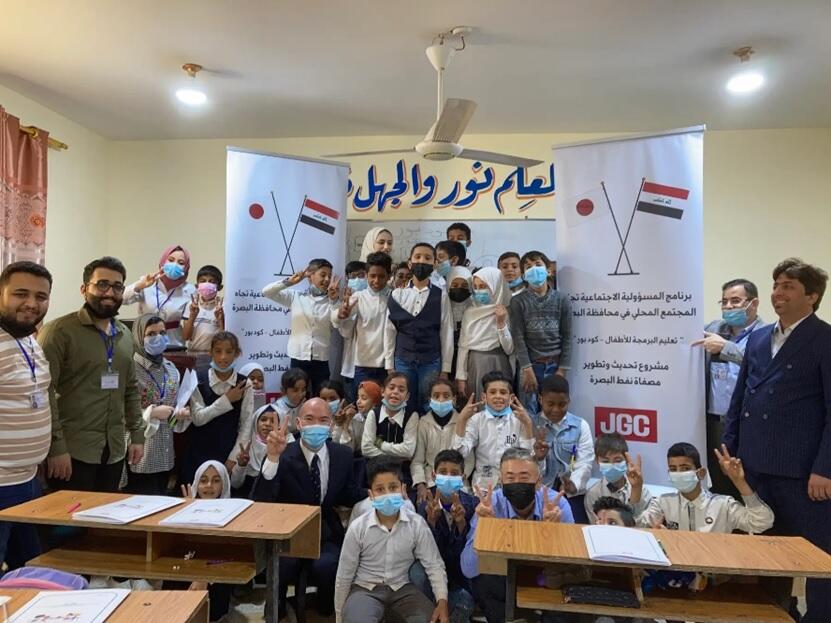
With students and teachers after the first class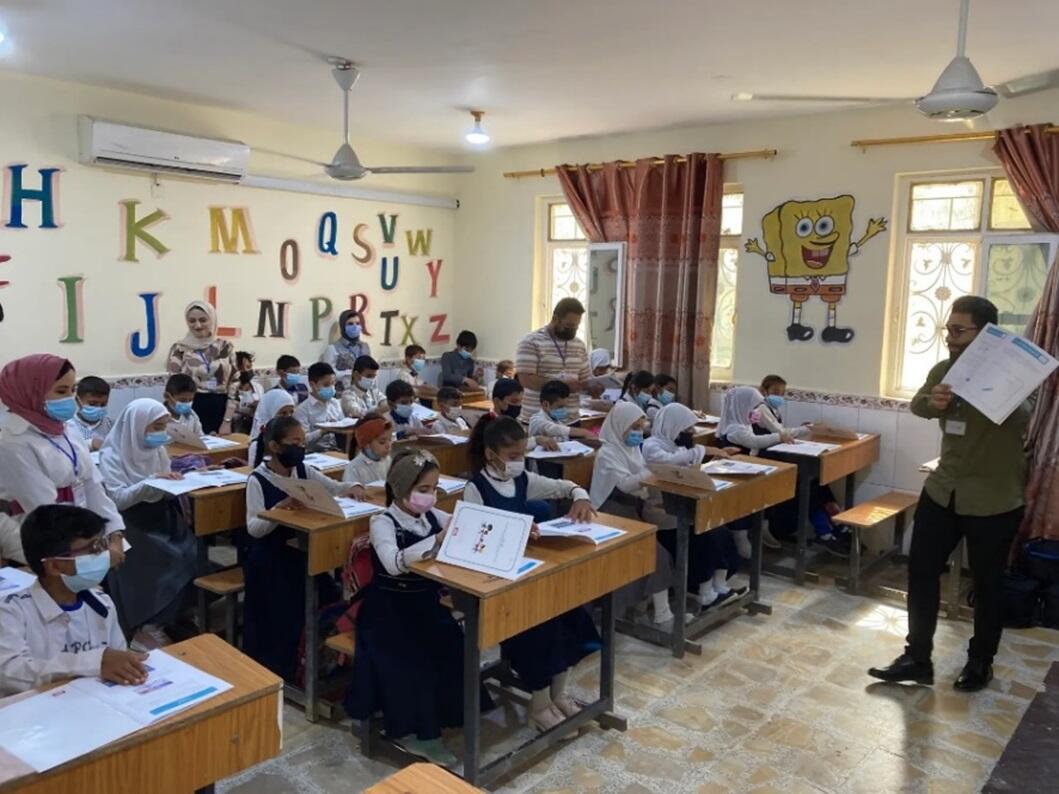
All classes are led by teachers recruited in Iraq. The curriculum emphasizes hands-on learning.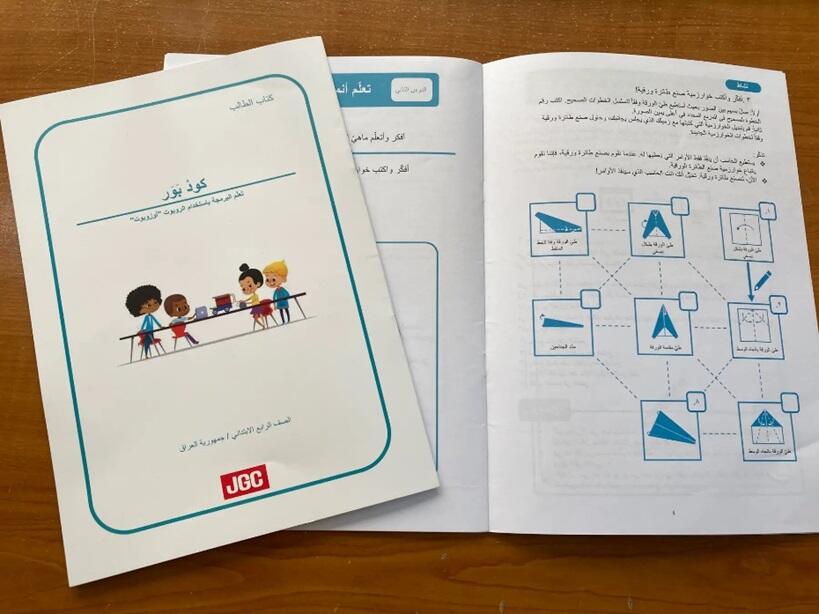
Teaching materials in Arabic tailored to project needs were developed under the supervision of Professor Yasumasa Oomori, Joetsu University of Education. This lesson teaches about instructions, using paper airplane folding as an example.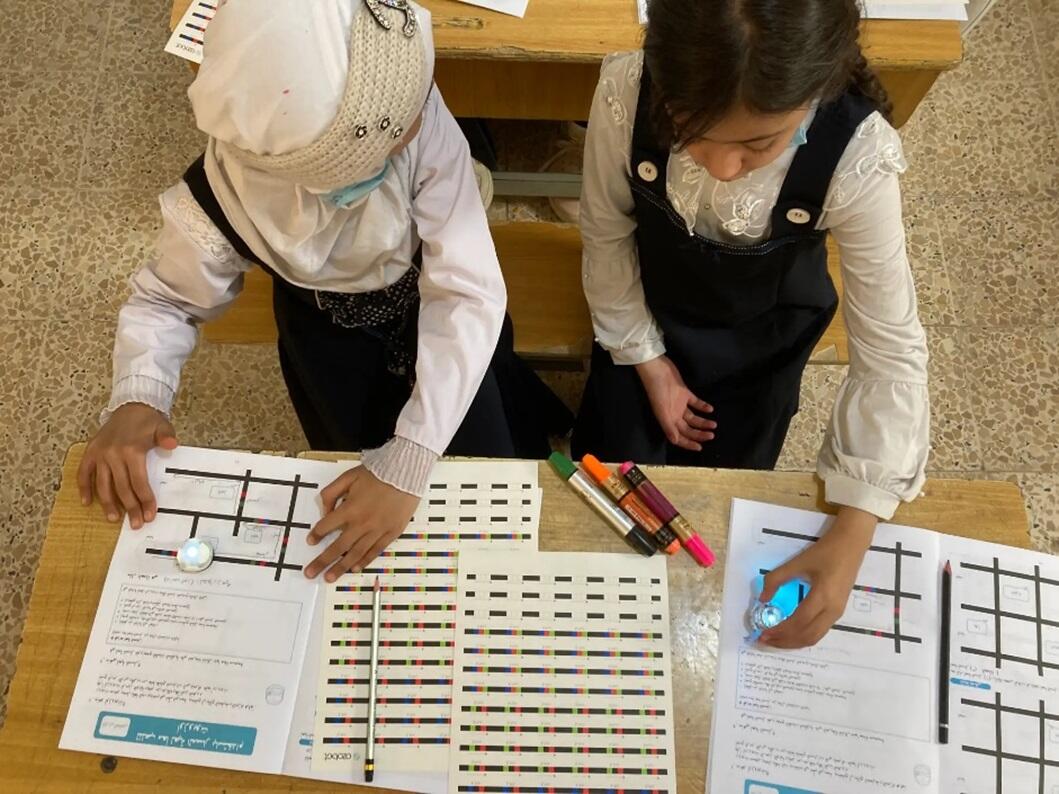
Learning the basics of sequential processes with Ozobot and color codes
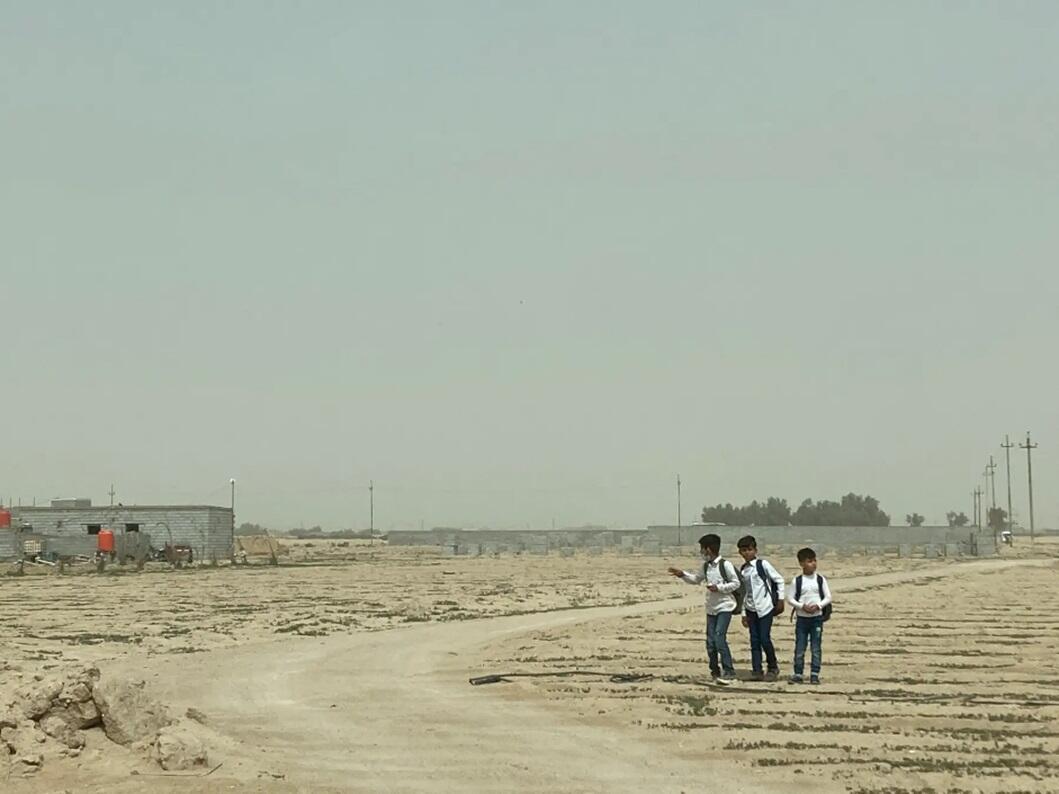
Schools are often located in desert areas, and for many students, require long commutes